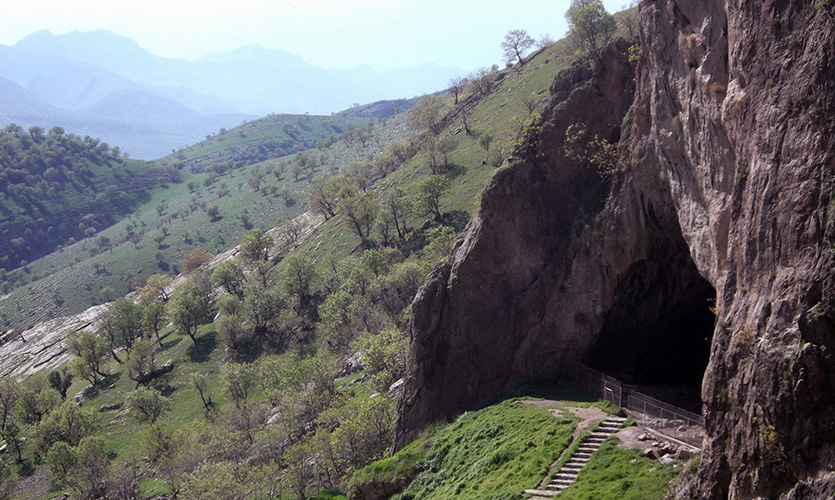New Neanderthal remains discovered

LJMU researchers discover new remains at the Shanidar Cave in the mountains of Iraq. Adding to remains found by the team in recent years, they have unearthed a Neanderthal with a crushed but complete skull and upper thorax, as well as forearms and hands.
LJMU’s Christopher Hunt, team co-leader of the excavation, explains how it felt to make the discovery:
“On first seeing the partly exposed skull, my immediate thought was that this was likely the crowning moment of my 40-year career.”
Emma Pomeroy, who up until recently was an academic at LJMU and is now at the University of Cambridge, was the first person to see the skull as she was trowelling and quickly identified what they had on their hands.
Shanidar has been of interest since the 1950s when at least 10 Neanderthals were discovered. What makes the site significant was the finding of a skeleton dusted with pollen, suggesting to some scientists that flowers had been laid at the individual’s burial. This prompted a new way of looking at Neanderthals, their reputation as a brutish species supplanted by this evidence of ritual.
Christopher explains the new remains; he hopes they can shed even more light on this theory: “The bones of the new skeleton fit together as they would have in life. The lower body and legs would have extended into the block of sediment containing the “flower burial,” which also contained partial remains of two other adults, both female, and a fragment of a juvenile. Whether the new find relates to one of these individuals is unclear. Analysis has a long way to go, but we should be able to test the hypothesis of the 'flower burial', as well as doing all the great science-based things you can do with a Neanderthal these days.”
Scientists will discuss these new finds at an upcoming workshop at the University of Cambridge to determine what they might tell us about Neanderthal views of death.


